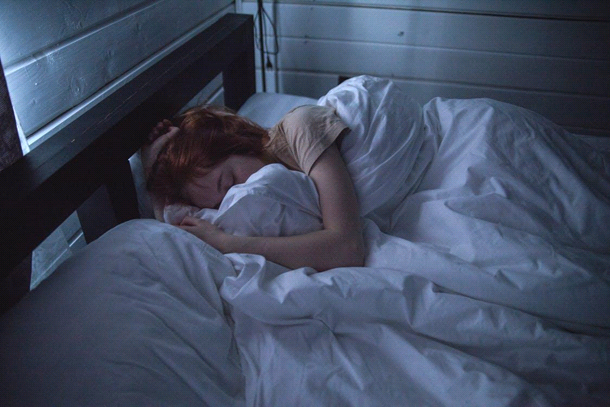Better Sleep Without Medication
Get The Sleep You Need Without Medication
You’ve spent hours tossing and turning but sleep just won’t come. You might be tempted to reach for the latest powerful sleep aid to knock you out but do you really want to run the risk of becoming reliant on medication or is there a better way to win back the sleep you really need?
Insomnia is becoming a reality for more and more people as our lives get increasingly hectic and technology is available to us 24-hours a day, making it harder for us to completely switch off when we need it most.
Take a look at these alternatives to medication that will help get to the root cause of the problem and take you back to dreamland.
What’s On Your Mind?
For the majority of people experiencing bouts of insomnia, the reasons behind their sleepless state are all too clear. If you’re anxious about work, suffering from stress or experiencing an emotionally challenging time in your life, all these things can lead to trouble sleeping.
If, however, you’re convinced that there’s nothing psychological causing the problem you may be experiencing an underlying medical condition or health problem that needs addressing.
In either case, do get yourself properly checked out by a doctor. Remember too that if you are taking medication for an ongoing condition, this too can disturb your shuteye, along with excessive alcohol and caffeine.
Jayne Holt, a Medical Advisor at Writemyx and Origin writings, says: “There are any number of reasons why your sleep may be interrupted from stress and depression, through to illness. In the rarest of cases you may be experiencing a sleep disorder. It’s important to stress that before you try any course of treatment you must talk to your doctor. However, you don’t always have to take over the counter medicine, there are other routes you can down first”.
Create Routine
A hectic lifestyle can lead to a hectic sleep pattern so establishing a bedtime routine can help let your brain know it’s time to wind down and go to sleep.
In our constantly connected times, switch off all your screens at least an hour before bedtime to let your brain relax and help your body produce more of the chemicals it needs to promote sleep. Over stimulation can block this vital chemical change and is a big part of the problem.
Get your bedroom, quiet and dark and err on the side of cool rather than too warm as this too can disrupt rest. If your environment is noisy try earplugs or some kind of white noise to cancel out the worst of it and use an eye mask if too much light is coming in. If you feel uncomfortable wearing a mask in bed consider adding blackout lining to the back of curtains; the darker the better.
Finally, don’t be tempted to take one last peek at your phone or tablet before going to sleep, choose a less stimulating activity like listening to music or reading a book, anything that makes you feel drowsy.
Combating Stress
If you do have worries on your mind there are several things you can try to help your sub-conscious associate your bed with sleep and not sleeplessness.
Sleep consultant Terry Atwood, of 1 Day 2 write, said: “You want to start making different associations about sleep and your bed, so if you’re feeling anxious and can’t sleep don’t lie in bed but instead get up. Try making something warm to drink or taking a bath, anything to calm your mind and help you to feel sleepy again”.
Avoiding alcohol and caffeine before bed can also help with anxiety issues that threaten to wake you up in the middle of the night.
It’s common for negative thoughts about sleep to spiral and lead to further anxiety, so challenge this negative train of thought when you can and tell yourself it’s perfectly normal to struggle with sleep once in a while and it won’t last forever.
Other ways to help your brain stop racing include meditation, deep breathing exercises and guided muscle relaxation where you actively think about relaxing each muscle as you move around your body.
Lastly, if you are still struggling look at taking some dietary supplements such as melatonin or valerian, a herb that promotes sleep with a mildly sedative-like effect.
Losing sleep can be stressful and have a real impact on your daily life. It can lead to further anxiety and even depression but by taking a positive and proactive approach, you stand a much better chance of beating it than just by prescribed medication alone.
Dealing with the root cause of the problem will help you to find a better long-term solution and have you back in the land of nod in no time. Call Alaska Sleep Clinic today for your free sleep assessment. Trust the Alaska Sleep Clinic named Best sleep lab in the state by CEO Monthly and Torch Award Business of the Year by the Better Business Bureau.
Author Bio: Writer and Analyst at Academic Brits, Joel Syder loves writing about his passions and helping people to achieve their full potential in the field of human resources.




